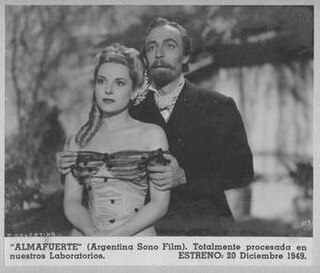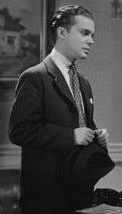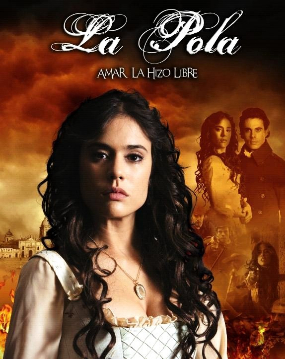Pola or POLA may refer to:
Adiós, muchachos is a 1955 Argentine film directed by Armando Bo and written by Rafael García Ibáñez. The film starred Pola Alonso and Arturo Arcari.

Francisco Múgica was an Argentine film director, film editor and cinematographer notable for his work during the classical era of Argentine cinema. He was born and died in Buenos Aires.

Carlos A. Olivari (1902–1955) was an Argentine screenwriter whose career was at its peak in the 1940s.
Pola Alonso was a classic Argentine film actress of the 1940s and 1950s.
Ana Arneodo was an Argentine actress notable for her work during the Golden Age of Argentine cinema.
José María Beltrán Ausejo was a prolific Spanish cinematographer who worked in Spanish, Argentine, Venezuelan and Brazilian cinema. He was involved in the cinematography of almost 80 films between 1925 and his death, and is best known for his work in Argentina in the 1940s and early 1950s.

The Husband That Is Necessary to Follow is a 1948 Argentine film directed by Augusto Cesar Vatteone and written by Tito Insausti. The film starred Francisco Álvarez, Ana Arneodo, Mapy Cortés and Pedro Quartucci.

Almafuerte is a 1949 Argentine drama film directed by Luis César Amadori and written by Belisario García Villar. The film is a biography of the Argentine poet Pedro Bonifacio Palacios. The film starred Narciso Ibáñez Menta as Almafuerte and Pola Alonso.

An Evening of Love is a 1943 Argentine romantic drama film of the classical era of Argentine cinema, directed and written by Rogelio Geissmann.The film starred Floren Delbene and Ana Arneodo.
Sara Barrié was a Chilean born Argentine film actress who appeared in the cinema of Argentina in the 1940s. She appeared in films such as Un Atardecer de amor in 1943 working with actors such as Floren Delbene and Ana Arneodo.
The Journey is a 1942 Argentine film directed by Francisco Múgica during the Golden Age of Argentine cinema.

Domingo Márquez was an Argentine actor. He starred in films like The Best Father in the World (1941), Los martes, orquídeas (1941), Filomena Marturano (1950), and The Fire Girl (1952). He had a minor role in the acclaimed Silver Condor-winning 1943 film Juvenilia.

Todo un hombre is a 1943 Argentine romantic drama film of the Golden Age of Argentine cinema, directed by Pierre Chenal on his Latin film debut, and starring Francisco Petrone and Amelia Bence. Critically acclaimed, the film was compared by critics in Argentina to Jean Vigo's L'Atalante. At the 1944 Argentine Film Critics Association Awards, Petrone won the Silver Condor Award for Best Actor for his performance in the film.

Los martes, orquídeas is a 1941 Argentine black and white comedy film of the Golden Age directed by Francisco Múgica and starring Mirtha Legrand, Enrique Serrano, Juan Carlos Thorry and Nuri Montsé. It won the Argentine Best Picture award for 1941. It was remade as the Hollywood classic You Were Never Lovelier (1942), starring Fred Astaire and Rita Hayworth.
Juan Soffici was an Argentine film editor. He was known for his work in the late 1930s and early 1940s for Lumiton.

The New Bell is a 1950 Argentine comedy drama film directed by Luis Moglia Barth and starring Pedro Quartucci, Rosa Rosen and Florindo Ferrario. The film's sets were designed by the art director Mario Vanarelli.
A Thief Has Arrived is a 1940 Argentine film of the Golden Age of Argentine cinema directed by Augusto Cesar Vatteone. It was based on a novel by Wenceslao Fernández Flórez. It was remade in 1950 as a Spanish film.

La Pola is a Colombian drama telenovela based on historical facts and directed by Sergio Cabrera for RCN Televisión. The series tells the political and loving life of Policarpa Salavarrieta Ríos,a woman who became one of the most important figures in the history of the Independence of Colombia for preferring death instead of submission. The series originally aired from September 13, 2010, to July 27, 2011.

End of the Month is a 1953 Argentine comedy film directed by Enrique Cahen Salaberry and starring Narciso Ibáñez Menta, Paola Loew and Ana Arneodo. The film's sets were designed by the art director Carlos T. Dowling.
This page is based on this
Wikipedia article Text is available under the
CC BY-SA 4.0 license; additional terms may apply.
Images, videos and audio are available under their respective licenses.











